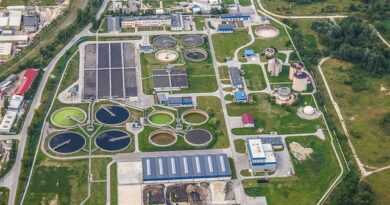Biden-Harris Administration Announces Funding for 162 Community-Led Infrastructure Projects as Part of the Investing in America Agenda
The U.S. Secretary of Transportation Pete Buttigieg just granted $2.2 billion from the RAISE discretionary grant program to 162 different infrastructure projects across the country. An example of one of these projects is a pedestrian bridge and a multi-modal transit hub to better connect neighborhoods and college campuses to downtown Orangeburg, South Carolina, which will cost $23 million.
According to the U.S. Department of Transportation, the RAISE grant program, expanded under the Bipartisan Infrastructure Law, supports communities of all sizes, with half of the FY2023 funding going to rural areas and the other half to urban areas. The grants are part of President Biden’s Investing in America agenda that is growing the American economy from the bottom up and middle out—from rebuilding our nation’s infrastructure to driving nearly $500 billion in private sector manufacturing and clean energy investments in the United States, to creating good-paying jobs and building a clean-energy economy that will combat climate change and make our communities more resilient.
Using the funds in President Biden’s infrastructure law, we are helping communities in every state across the country realize their visions for new infrastructure projects,” – Pete Buttigieg, U.S. Transportation Secretary.
“This round of RAISE grants is helping create a new generation of good-paying jobs in rural and urban communities alike, with projects whose benefits will include improving safety, fighting climate change, advancing equity, strengthening our supply chain, and more.”
This year’s awarded projects will help more people get where they need to be quickly, affordably, and safely. From projects that will strengthen supply chains and reduce bottlenecks, to bridge replacements and road projects to make them safer and more efficient for drivers, cyclists, and pedestrians, this year’s awards will build and repair infrastructure that benefits Americans for future generations to come, while taking steps to reduce emissions from the transportation sector and support wealth creation and good-paying union jobs. Seventy percent of the grants are going to projects in regions defined as an Area of Persistent Poverty or a Historically Disadvantaged Community.




